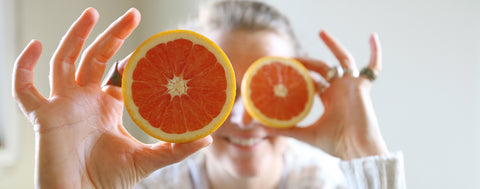The crisp mornings and cooler nights of winter have arrived, and they are a timely reminder to oneself that we need to take care of our winter health. Building and maintaining a strong and efficient immune system underpins our overall health, and without it we risk exposing ourselves to those opportunist winter nasties.
Our immune system is the guardian of our bodies, shielding our system from damaging forces from the environment. It is a critical system in our bodies and one that needs to be looked after. It is made up of various organs, cells and proteins. It works hard for us, and often goes un noticed until something is wrong. When our immune system is compromised it cannot protect us and it cannot do its job.
There are a number of signs that point at a weakened immune system to be aware of:
- Stress – If you are in a continuous state of stress, your digestive system may shut down, which will interfere with the immune system’s natural functions. This may result in inflammation, a reduction of white blood cells and a higher susceptibility to infection.
- Fatigue – Life is busy. But if you continuously wake up feeling exhausted this could be a sign that your immune system needs more support.
- Constantly ill – If you find yourself battling with bugs time and time again then this is a sure sign that your immune system is in need of some serious support.
- Overweight – Carrying extra weight may put additional stress on your immune system but can also be a sign that your system is already weakened.
- Not getting enough sunlight – Sunlight allows our bodies to produce vitamin D, which is essential for our well-being. It also energizes specific cells in our body that support our immune system.
- Tummy Trouble – often linked with stress, but if you suffer from an upset stomach it may be a sign that your gut health is not in top shape. Diarrhoea, nausea and general stomach cramping are all signs of a weakened immune system.
- Slow healing wounds – ever noticed that your wounds take a long time to heal? A healthy immune system supports the skins ability to heal quickly so if those cuts and scrapes are taking their time to mend then this is a sign of an underactive immune system.
Let’s give this silent system the rewards it deserves, by supporting it naturally and organically with the power of plants. Plants work symbiotically with our immune system because of the active plant chemicals found within them. They work on mutual pathways and organs within this system, making them the ideal therapeutic to build your immunity foundation.
Let’s discover a little more about the top two immune boosting plants:
Thyme
- Helps build immunity
- Naturally rich in antioxidants
- Endorsed by the official Commission E monograph and major pharmacopoeias
- A powerful antiseptic herb that contains essential oils to support the fight against immune system invaders
Echinacea
- Renowned for supporting the upper respiratory tract – your first line of defence in your immune system
- Supports the natural multiplication of white cells (the cells of the immune system that are involved in protecting the body against foreign invaders!)
- One of the most prevalent plants used in traditional healthcare to support healthy immune function
Boosting your immune defence daily with immune strengthening plants such as Thyme and Echinacea supports your immune health at a cellular level, elevating your immune strengthening efforts. What’s more, they have been used for generations, and proven effective against immune threats.
This article is not intended to substitute for medical advice. For any concerns, consult your health professional.
Written by Sandra Clair. Sandra is a health scientist, registered medical herbalist, and founder of plant medicine company Artemis.



